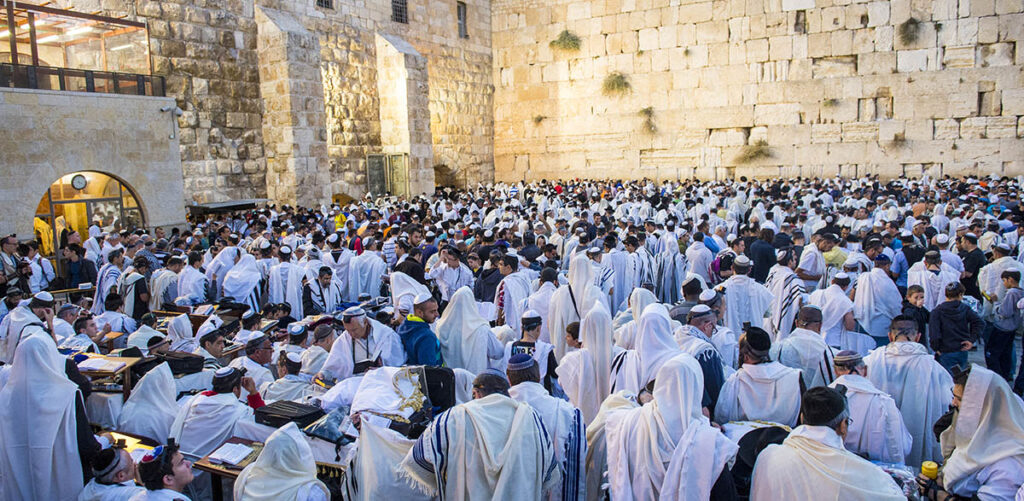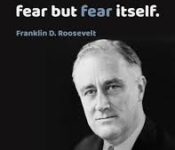When We Ask, G-d Listens
Noach: When We Ask, G-d Listens
A man once petitioned Rabbi Nosson of Breslov for a blessing to find his match. He complained that he had been seeking the right woman for many years and had still not found her. Rabbo Nosson discerned that he was slipping into despair, so he encouraged him, saying, Have hope, young man, remember that Jacob our patriarch was eighty-four by the time he was married.
The man retorted that he can’t be compared to Jacob. Jacob was a holy man and could be expected to endure. Plus, every suffering Jacob endured surely brought untold benefits to his descendants for all time. But me, what am I? How can you compare me to Jacob? Reb Nosson replied, “You and Jacob are precisely the same. The only difference is that Jacob knew it, and you don’t.”
It is easy to think that G-d doesn’t listen to us and that our prayers are in vain. When we encounter difficulties or when others encounter problems, we hesitate to pray, because what good would it do? If a saintly rabbi prays, G-d would surely listen, but what good can my prayers do?
The Baal Shem Tov (Kesser Shem Tov 145) taught that just as we should not be overly arrogant, so must we not be overly humble and think that G-d doesn’t care about us. Rabbi Tzadok Hakohen (Tzikdas Hatzadik p. 151a) taught similarly that just as we must believe in G-d, so must we believe in ourselves. We must believe that G-d cares about us and that we are not worthless in His eyes. We must believe that G-d derives much pleasure from our prayers and good deeds and never despair.
Noah’s Lack of Faith
The Torah (Genesis 7:7) tells us that Noah entered the ark to escape the flood. The great biblical commentator, Rashi, pointed out that even Noah had little faith. He believed, but he didn’t believe that the flood would come, so he waited till the waters forced him into the ark.
Rabbi Levi Yitzchak of Berdychiv (Kedushas Levi, Noach) struggled with this comment. How can we suggest that Noah lacked faith if the Torah (Genesis 6:9) calls him a righteous, faultless person, who walked with G-d despite the corruption of his generation?
Rabbi Levi Yitzchak provided a daring translation of Rashi’s comment. He said that Noah was, indeed, righteous and of little faith. How can both be true? Because he did not lack faith in G-d. He lacked faith in himself—in his ability to sway G-d with his prayers. Remember that Rabbi Tzadok Hakohen taught that just as we must believe in G-d, so must we believe in ourselves? Noah believed in G-d perfectly but had little faith in himself. He did not think G-d saw much value in him.
Noah thought that his prayers would be wasted on G-d. He did not believe G-d would listen if he asked him to save the generation. When G-d told Abraham that he would destroy the people of Sodom, Abraham immediately prayed for their salvation. Noah didn’t pray. Not because he didn’t care but because he didn’t believe G-d thought more of him than of others. Remember the Baal Shem Tov warned against excessive humility? Noah was too humble. Otherwise, he would have prayed and saved his generation.
Noah assumed that if G-d would save him, G-d would save everyone. Although G-d warned him that only those in the ark would be saved, Noah couldn’t make himself believe that he would somehow survive what the others would not. He was so humble that, despite his flawless righteousness, he did not see himself as better than others.
Rashi says that Noah refused to enter the ark until he was forced by the rainfall because he did not believe there would be a flood. Rabbi Levi Yitzchak redrafted Rashi’s words to mean that Noah saw no point in entering the ark because, though he believed it would rain, he did not believe it would destroy humanity, and he would be saved. If G-d promised to save him, G-d would surely save everyone else, so what point was there to entering the ark?
While on the surface this seems like a virtue, taken to the extreme, it can boomerang into a flaw. It can cause us to give up on ourselves. To fall into despair. To surrender and not bother praying when circumstances are extreme. As they say in Israel, lehashlim im hamatzav, to make peace with the situation.
We Don’t Need This Man’s Prayers
The Rabbi Levi Yitzchak, who taught this, also lived it. He was a lover of Israel and an advocate for all Jews. As a pious man, people thronged to him from all over, asking him to pray for them. Rabbi Levi Yitzchak’s heart would melt for them, and he would cry from his depths for their plights.
However, there was one thing that bothered him greatly. He could not stand when the people who asked him to pray for them felt unworthy of praying for themselves. He was happy to pray for anyone who asked, but he refused to let them believe that they were incapable of praying for themselves.
One day, Rabbi Levi Yitzchak announced that anyone who wanted his prayers would have to pay a fixed sum, and there would be no discounts. A widow appeared with her young son and told him she could not afford to pay the entire fee. She pulled a collection of coins from her pocket and placed them on the table. When the coins were counted, it was determined that they were indeed less than the required sum.
Rabbi Levi Yitzchak held firm and insisted that he would not pray for her unless she paid up. The woman was aghast. How can a holy, righteous man like you refuse to pray for a little boy and a poor widow? But Rabbi Levi Ytizchak refused to budge. The woman gathered up her kopeks and slid them back into her pocket. She picked up her little boy and said, Come, my dear boy, we will pray to G-d for ourselves. We don’t need this rabbi here to pray for us.
As soon as he heard this, Rabbi Levi Yitzchak began to smile and beam. This was precisely what he had been hoping to hear. He assured the lady that he would gladly pray for her and her son, and he would do so for free. All he wanted to hear was that she believed that if she prayed, G-d would listen to her, too.
There Will Be Peace
This lesson applies to every challenge in life. If you were just informed that you have cancer, G-d forbid. If you just lost your husband and are left with no financial support, G-d forbid. If you lost your job and are at risk of losing your home. No matter the crisis, you are not powerless and not worthless. Don’t think your prayer is a waste of breath. It is not. You are G-d’s precious child, and when you pray, He listens.
Pray from your depths like you never prayed before. Don’t throw your prayers away. They are powerful gems, and they can help.
If you have despaired of seeing peace in the Middle East, of seeing the bodies of all the hostages returned, or of Jews living in our Holy Land in security and at peace with their neighbors, know that you hold the key to their salvation. You have tried everything. You screamed at your TV, you grumbled to your friends, and you debated with your neighbors. But have you talked to G-d? I mean, really prayed to G-d? Do you believe He will listen? I mean, really believe that He will listen.
Try it. You will be shocked by the outcome.


























